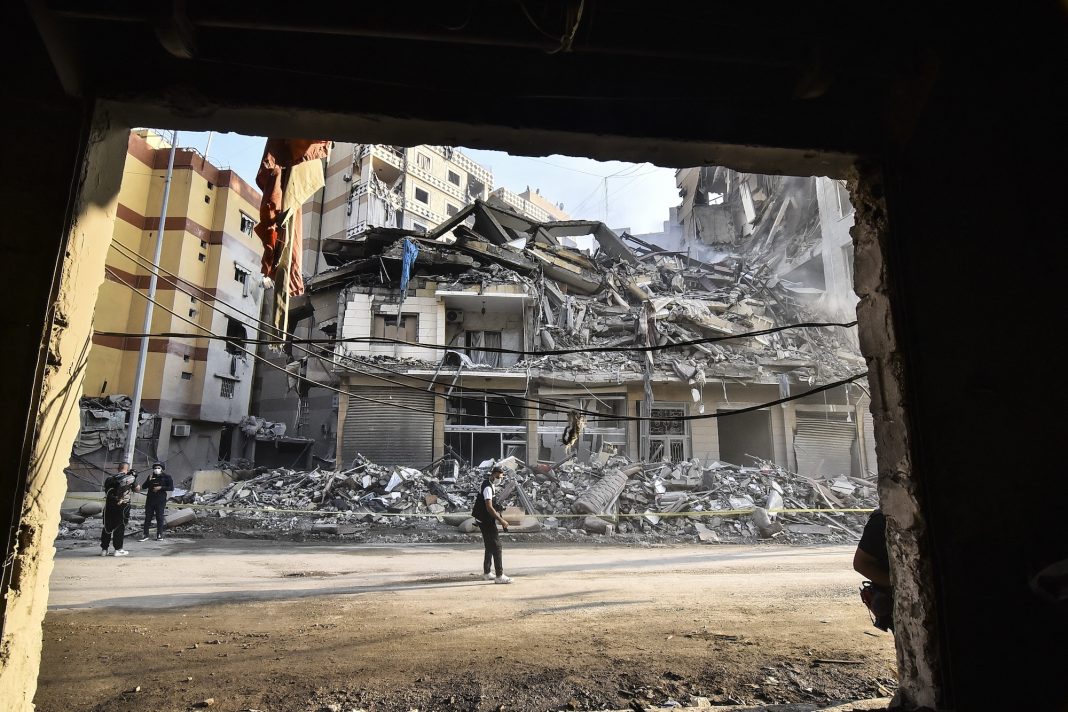Lebanese officials were engaged in discussions on a U.S. proposal for a truce amidst the ongoing conflict between Israel and Hezbollah, which has intensified since late September. The heightened military exchanges marked a shift from a year of relatively restrained border skirmishes, which Hezbollah framed as support for Hamas in Gaza.
During a meeting on Thursday, U.S. Ambassador to Lebanon Lisa Johnson presented a 13-point plan to senior Lebanese officials, with a key highlight being a proposed 60-day ceasefire. This truce would allow Lebanon to reposition its troops along the border, although there has been no response from Israel to this initiative so far. Efforts by the U.S. and France to establish a ceasefire have largely been unsuccessful, with Lebanon reporting over 3,440 fatalities since the onset of hostilities in October of the previous year.
On the ground, Israel has been adamant about the safe return of its citizens, who have been displaced due to the conflict. The escalation began on September 23, when Israel intensified its air strikes against Hezbollah, and subsequently deployed ground troops in southern Lebanon, all while the Gaza conflict continued unabated.
In a parallel development, Hamas officials indicated their readiness for a ceasefire in Gaza. They called on U.S. President-elect Donald Trump to exert pressure on Israel to halt its operations. This move follows Qatar’s decision to suspend its mediation role in light of a lack of seriousness from both sides in reaching an agreement.
Continued Israeli strikes have led to devastation in Gaza, where civilian casualties have mounted. In one of the recent attacks, residents of Deir el-Balah were left to sift through the debris of their homes after an early morning bombing, resulting in multiple casualties. This grim reality has prompted calls from residents for the international community to intervene and stop the violence.
The conflict commenced with Hamas’s unexpected assault on October 7, resulting in significant loss of life among civilians in Israel. In retaliatory actions, Israel’s military campaign has claimed a staggering number of lives in Gaza, predominantly affecting civilians, according to reports from the Hamas-operated health ministry. Meanwhile, the situation for hostages remains dire, with ongoing uncertainty about their fate.
The humanitarian situation in Gaza is critical, as reported by various NGOs, stating that the amount of aid entering the region has reached historically low levels. Issues of looting have emerged, exacerbated by Israel’s military operations targeting local authorities that could otherwise manage the situation.
In Lebanon, the conflict has added to the destruction, with Israeli airstrikes targeting areas like Beirut’s southern suburbs. Recent operations reportedly dismantled a stockpile of rockets and multiple launchers established by Hezbollah. The UN peacekeeping mission in Lebanon emphasized the importance of adhering to Resolution 1701, a historical agreement that established guidelines for military presence in southern Lebanon.
As the situation remains tense, the suffering is acutely felt by families on both sides of the conflict, with the emotional toll evident among rescue workers and civilians grappling with the loss of their loved ones and homes.





